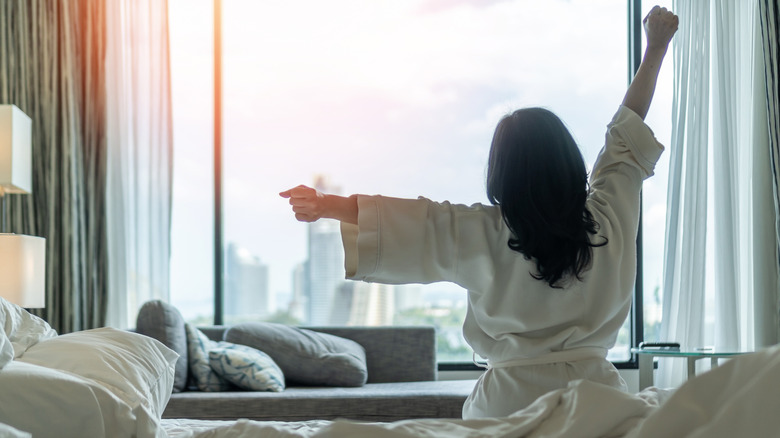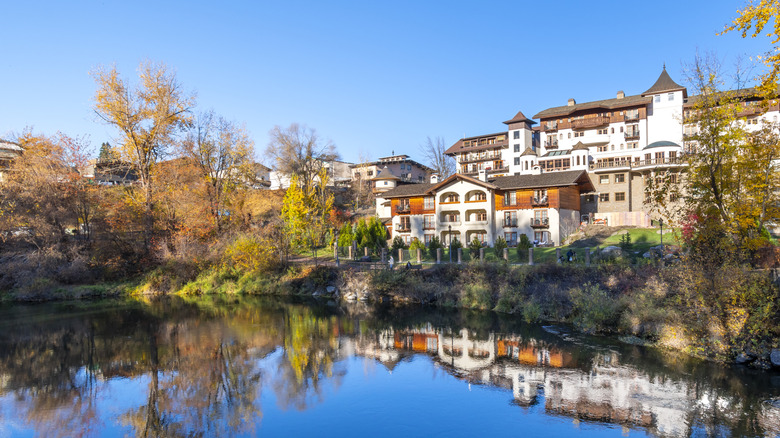More People Are Choosing To Rest On Vacations Than Have A Packed Schedule (And What This Means For Tourism)
Gone are the days when traveling meant waking up earlier than you normally would (and going to bed later, too) just to squeeze in a few extra activities in the day. The latest wellness travel trend revolves around the complete opposite: getting more and better rest. "Sleep tourism," as it's sometimes called, is more than just including downtime in your itinerary. Instead, sleep and relaxation are the focal point of the trip, taking things a step further than completely unplugging while you're on vacation. Though the trend emerged in the early post-pandemic era, this niche corner of the luxury travel market is projected to grow by more than $400 billion between 2023 and 2028, according to a report by HTF Market Intelligence.
Sleep tourism developed as a response to an increasingly stressful day-to-day life. While visiting every location in a destination's guidebook is tempting, in reality, this kind of trip doesn't refresh the mind or the body — it's often just a different kind of stress. Relaxation has become the ultimate luxury experience, and traveling for recovery is the ultimate expression of that ideal.
So what does traveling for respite look like? An ideal sleep vacation will be designed to create an environment tailored to resting. This may look very different from one traveler to another. The idea is to curate a trip where most (if not every) day will include relaxing or sleep-inducing activities. For some, it will mean investing in accommodations with specific amenities and services, which can range from extensive pillow menus to tech-free rooms. For others, it may simply be designing a vacation schedule that includes activities they know will help them calm their minds and bodies.
Where to find the best sleep tourism experience
As the trend of sleep-centric vacations grows, destinations are leaning into their calmer sides, and you don't need to travel far to find them. The city of Leavenworth in Washington has built itself a reputation for being America's ultimate sleep-friendly spot, where half the town's accommodations offer spa services. Leavenworth's Post Hotel provides a comprehensive list of spa treatments and services and features multiple pools for guests, cold plunges, and Kneipp Stepping to curate your dream wellness retreat. Hotels in Canadian cities like Whistler boast similar perks. Guests staying at the Fairmont Chateau Whistler can book a Nidra Sleep Treatment aromatherapy massage session for a rejuvenating rest.
Looking overseas, Switzerland comes in as the top recommendation. The country is a luxury destination in its own right, where amazing views and pristine nature form the background to a holistic approach to health. Noteworthy hotels include the Six Senses Crans-Montana, which has a sleep-specific program (ranging from a few days to a whole week) where your schedule is optimized for rest and recuperation. Then there's the Tschuggen Grand Hotel in Arosa, where guests can request the services of "dream butlers" who transform your room into a calming environment while you are at the resort's spa.
Plenty of hotels around the country and the globe already feature initiatives to promote better sleep — yes, there are scientific reasons you sleep better in a hotel. But staying somewhere that takes it a step further, whether that's having specific sleep programs or an on-site sleep concierge, will make your vacation that much more relaxing. After all, isn't taking it easy the goal of most vacations?

